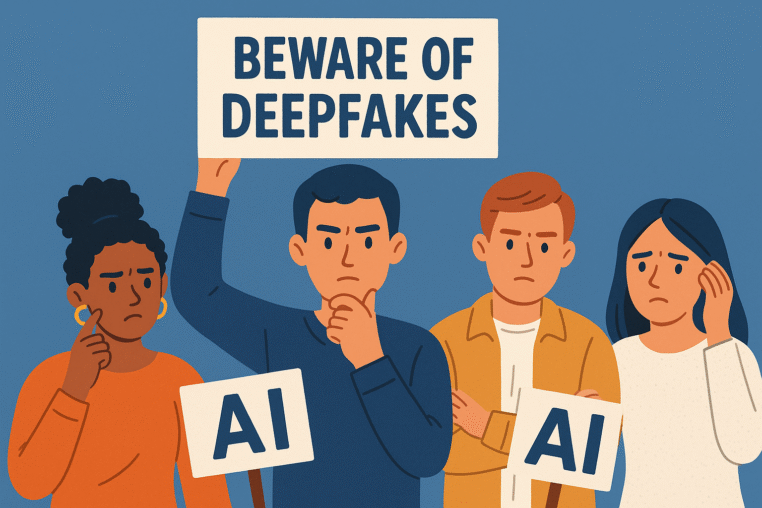In the last blog, we talked about ways we can save ourselves from the hazards of DeepFake. We all have to face the fact that deepfakes are not going anywhere. They are getting better, faster, and convincing day by day. We have already seen how powerful AI-generated content can blur the lines between fact and fiction, turning political speeches, product endorsements, or even private conversations into tools of manipulation. This is not just a technological nuisance which is a cultural and moral crisis.
But amidst this torrent of synthetic content, there is one thing AI can’t replicate: human responsibility.
While it may feel like we’re powerless in the face of this deepfake deluge, the truth is quite the opposite. Our greatest defense isn’t just technology—it’s awareness, accountability, and an unwavering moral compass. We don’t just need sharper eyes. We need sharper minds.
There are tools and browser extensions.
Yes, there are tools and browser extensions. Yes, AI is being used to detect AI. But before you install the latest detection plugin, ask yourself: Am I being a responsible digital citizen? Because it starts with you. It starts with us. If we let convenience override caution, or if we keep forwarding sensational videos without checking their sources, we become part of the problem.
Deepfakes, in many ways, are not just an external threat. They’re a mirror held up to society, exposing how quickly we believe what we want to believe, how we often value drama over truth, and how easy it is to manipulate our emotions with a few cleverly edited frames.
What can we do to slow down this process of continuous wreckage?
We slow down. We question. We observe.
We teach our children, guide our elders, and share with our peers.
We make it our personal mission to ensure that truth doesn’t get drowned in the noise of illusion.
If you’re a teacher, introduce students to media literacy. If you’re a parent, talk to your kids about the dangers of manipulated content. If you’re a creator, add watermarks, disclaimers, and transparency to your work. If you’re just a social media user, pause before hitting “share.”
We must start treating digital content like we treat food—check the source, read the label, and don’t consume blindly.
On a broader scale, we need to push for stronger verification systems. We need digital platforms to step up—not just with small print labels that say “AI-generated,” but with clear visual indicators, provenance tools, and a no-tolerance policy for malicious deepfakes.
And above all, we need collective digital ethics—a culture where we hold ourselves and others accountable for spreading falsehoods. Because no matter how advanced AI becomes, it is still humans who choose to deceive, and it is still humans who suffer the consequences.
In a world where anyone’s face, voice, and words can be faked in seconds, the real power lies not in coding lines of defense, but in drawing moral lines.
Deepfakes may steal identity, but only you can protect your integrity.
So the next time you see a shocking video of a politician saying something outrageous, or a viral clip that seems just a little too perfect—pause. Let your skepticism kick in. Let your ethics guide you. And let truth—not technology—be your compass.
Because while AI can fabricate many things, it cannot generate the most powerful weapon of all:
An aware and awake human being.
Keep Reading Foramz for your daily dose of moral support.


Leave a Reply